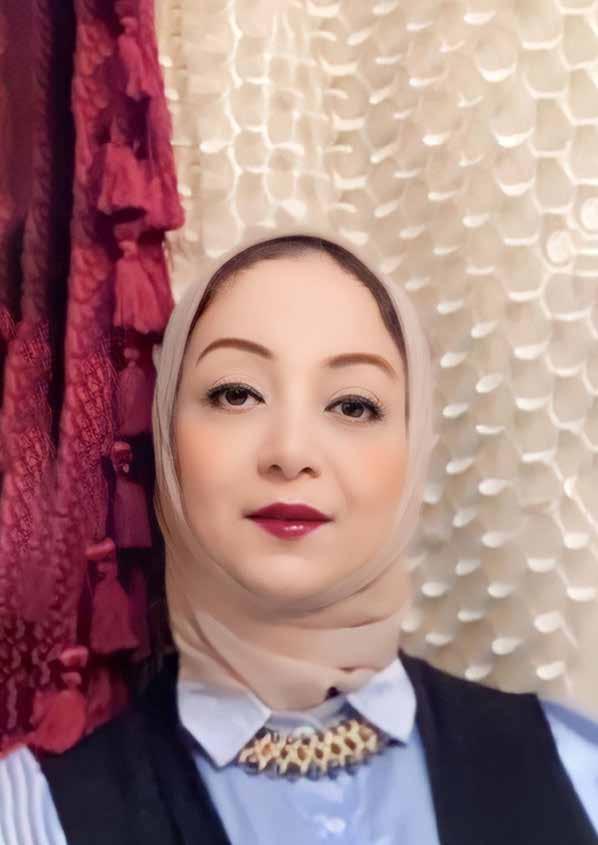










Donate Now and Keep the Magazine Live in 2025
Live Encounters is a not-for-profit free online magazine that was founded in 2009 in Bali, Indonesia. It showcases some of the best writing from around the world. Poets, writers, academics, civil & human/animal rights activists, academics, environmentalists, social workers, photographers and more have contributed their time and knowledge for the benefit of the readers of:
Live Encounters Magazine (2010), Live Encounters Poetry & Writing (2016), Live Encounters Young Poets & Writers (2019) and now, Live Encounters Books (August 2020).
We are appealing for donations to pay for the administrative and technical aspects of the publication. Please help by donating any amount for this just cause as events are threatening the very future of Live Encounters.
Om Shanti Shanti Shanti Om
Mark Ulyseas
Publisher/Editor

All articles and photographs are the copyright of www.liveencounters.net and its contributors. No part of this publication may be reproduced without the explicit written permission of www.liveencounters.net. Offenders will be criminally prosecuted to the full extent of the law prevailing in their home country and/or elsewhere.


Volume Six
November-December 2024
Dr. Salwa Gouda, Guest editorial
Abdel Wahab Al-Melaweh
Ahmed Hussein Humaidan
Ahmed Nabawi
Aicha Bassry
Ali Al-Hazmi
Ali Al-Shalah
Ali Hassan Al-Mothana Alcheikh Atiah
Asaad AlFakhry
Aziz Azrhai
Azmi Abdel Wahab
Habiba Mohamedi
Hassan Najmi
Kamal Abdel Hamid
Mohamed Baraka
Mohammed Al-Kafrawy
Mostafa Abada
Sameh Mahgoub
Samira Al Bouzidi
Sherif Saleh
Wadi’Sa’adah

Salwa Gouda is an Egyptian literary translator, critic, and academic at the English Language and Literature Department at AinShams University. She holds a PhD in English literature and criticism. She received her education at Ain-Shams University and California State University in San Bernardino. She has published several academic books, including “Lectures in English Poetry, and “Introduction to Modern Literary Criticism” and others. She has also contributed to the translation of “The Arab Encyclopedia for Pioneers,” which includes poets and their poetry, philosophers, historians, and men of letters, under the supervision of UNESCO. Additionally, her poetry translations have been published in various international magazines.
Man is a creative creature, and creativity is a life force that pushes life forward to a dynamic existence. Literary writing, as a creative act, plays an essential role in this direction. People throughout history trusted creative writers and considered them supporting agents in explaining human behaviors, motives, histories, tendencies and attitudes before the emergence of Psychology and human sciences. Not only were writers the prophets of inspiration and revelation but also the vehicles of wisdom, meanings and the saviors of the world at certain time in history when the people lost confidence in the power of religion and politicians. Nevertheless, the French literary critic Roland Barthes‘s essay, The Death of the Author 1967, challenges the traditional literary views by arguing against the idea of authors as sole creators of meaning. Instead, he suggests that writing emerges from various cultural influences rather than a single authorial voice.
The essay explores the evolution of the concept of the author and analyzes how different writers have challenged this notion. Barthes emphasizes a transformation in contemporary literature wherein the significance of the author is reduced, allowing the text to assume a prominent role. He contends that the essence of writing resides in the reading process, positioning the reader as the site where all meanings of the text intersect. Barthes argues that linking a text to its author constrains its potential for interpretation. By advocating for the “death of the author,” he promotes the emergence of the reader, freeing the text from a singular interpretation and permitting a multitude of meanings. Barthes critiques conventional critical methods that aim to reveal the author’s intentions, calling for a more exploratory interaction with literary works.
The notion of “the death of the author” holds significant appeal and relevance in contemporary discourse. Many individuals interpret texts from the perspective of the author’s identity, forming opinions based on their sentiments towards the writer rather than engaging directly with the content of the ideas presented. Central to this discussion is our desire to comprehend art through the lens of its creators, while simultaneously striving for a more complete understanding. We are in pursuit of answers. The phenomenon often termed the “cult of the author” is, in fact, a relatively recent development. During the Middle Ages, the practice of imitation was widespread and accepted; it was not considered a breach of copyright but rather a normative aspect of literary creation.
The phrase “the death of the author” means denying that the text originates from the author or that it is an expression of the author’s experience and life knowledge. The result is the denial of the creative self, creativity, and the originality of the creator. There is no doubt that this is strange and shocking, but this is what Roland Barthes explicitly calls for in his essay “The Death of the Author”.
This nihilistic view of the creative process is nothing but part of a comprehensive tendency that excludes the individual’s self from the center of human existence, denying any active role it has in history and replacing it with language, so that the self becomes a product of language rather than language being a product of the self, and the world and everything turn into a text.
It has been previously indicated that the replacement of language for the authorial self is part of a broader trend that seeks to undermine the centrality of the individual self as a source of literary creativity and as an active element in the movement of history, stripping it of all the humanistic values for which it has long struggled and began to achieve during the European Enlightenment. For this reason, Barthes states: “The author is a modern idea; it is the product of our societies that discovered, after emerging from the Middle Ages, the value and status of the individual, thanks to English empiricism, French rationalism, and the personal doctrine of the Reformation.
Thus, it was natural for this situation, which represents the essence of capitalist ideology, to attribute great importance to the figure of the author.” Here, Barthes reveals his ideological inclination against values that elevate the self, describing them as bourgeois capitalist values.
However, the target of this elimination is not just the authorial self; rather, the elimination aims at the critic, interpretation, and the meaning of the text and the subject in all its realistic, social, and historical dimensions, making the call for the death of the author a call to negate all elements of literary activity. He states: “When the author is excluded, the claim for interpretation becomes futile. To link the text to the author means to impose a limit on the text and to impose a final meaning upon it, thereby closing off writing, which suits the critic perfectly. The critic sees his primary task as uncovering the author—uncovering society, history, the self, and freedom within the text. When the author is discovered, the text is interpreted, which is considered a victory for the critic. Therefore, it is not strange that the undermining of the author represents an undermining of the critic.”
Roland Barthes posits that the concept of the ‘death of the author’ signifies the ‘birth of the reader.’ This assertion implies that the author does not hold the position of ultimate authority over the text, and that the interpretation of the text is shaped by the reader’s personal insights rather than the author’s intentions. Viewing a text solely as the creation of an author suggests that it is an isolated work, disregarding the myriad influences, references, and allusions that contribute to its overall significance. Barthes argues that attributing an author to a text imposes constraints, providing it with a definitive meaning and thereby restricting the reader’s interpretative freedom. He contends that the author’s name serves as a marker of finality, limiting the scope of meaning and leaving little opportunity for diverse interpretations. The notion of the ‘death of the author’ is thus a complex idea that does not pertain to the literal or physical demise of an individual.
The concept known as the ‘death of the author’ presents a paradoxical notion that does not pertain to the actual or physical demise of an author, but rather signifies the absence of the author within the text itself. By eliminating the author from consideration, a space is created for diverse interpretations by readers, leading to a multitude of distinct understandings. Barthes challenges the conventional perspective that positions the author as the origin of the text, the source of its meaning, and the sole authority on its interpretation. This perspective, as articulated by Barthes, heralds the ‘birth of the reader,’ as it empowers readers to assume control over the interpretative process.
It is paradoxical that Barthes, having dismissed the author and all the fundamental components of literary creation, chose to retain the reader. Nevertheless, he permitted the reader’s presence only after removing all essential and human characteristics. He asserts: “The reader is the space on which all the references that make up writing are inscribed without losing their identity... The reader, devoid of history, biography, and psychology, is merely the person holding all the traces that constitute the written text... The birth of the reader must be at the expense of the death of the author.”

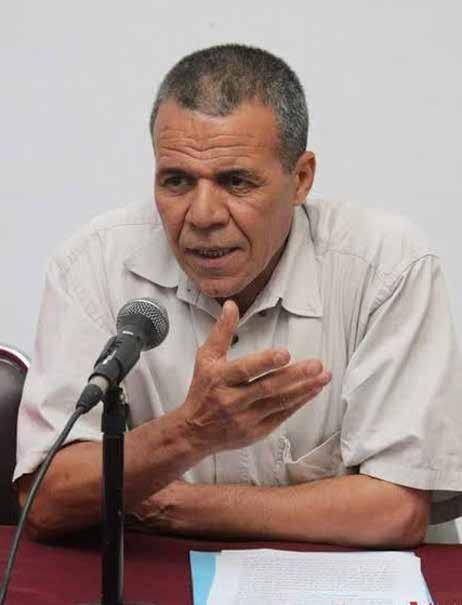
Abdel Wahab Al-Melaweh (1961) is a Tunisian poet, translator, and novelist who has published more than ten poetry collections, two novels, and several critical studies.
The gardens that stay awake at night disturb no one
The sea is not as deep as you might think
And the sky that rises is not, in turn, higher
Days do not follow one another
Sometimes they falter in completing
Their circle and twist around themselves
A little recklessness will suffice
To stop life from lying,
And the trees shed their leaves
In defiance of the supposed justice of the seasons
Woodstock was not merely a sensual celebration
Or promotional posters to generalize the benefits of chaos
In an era of collective suicide
How astonishing it was to bear the ecstasy
Of the universe on the wings of butterflies!
And the apple contradicts Newton’s final prayer
It is not about Ginsberg’s howl or Kerouac’s road
Or Kubrick’s apple
For the flower could no longer bear its fragrance
Trapped in the archive of the future
The trees were adept at mixing rock with blues
As for the air, it has abandoned its neutrality
And has become less shy
It was necessary
To break the chains of time
And invent a feeling deeper than the sea
Higher than the sky
And quieter than the gardens
It was necessary for music without rhythm
Crying without tears, joy without laughter
Dancing without drums, longing without sadness
That is depth.

Ahmed Hussein Humaidan (1958) is a Syrian poet, literary critic, and short story writer. He was born in Aleppo and has many poetic and critical publications. He also won the United Arab Emirates Writer’s Union Award in short story in two consecutive sessions (1999–2000).
You depart
O queen
And the kohl of the poem
In your eyes
Moans from abandonment
And the rejection of exile
So who
Can pull the warmth of your heart
From my day
And sing for the killing of the rose of love
Who Pushes my blood
Into the veins of the grave
While I
Am the traveler from you
To you
I came to you
With the boats of longing
Carrying what remains of me
So the departure precedes me
To my eyes
With the colors of mirage
And the winds of yearning overpower my sails
So your hands take them
And you travel towards the shores of the sea
Songs follow you
And I depart
continued overleaf...
Between the banks of the dream
Enveloped by wishes
The rope of night surprised me
Hanging before sunset
Tighten the sun of your eyes from me
So where will you remove the clouds?
Guide me
Where can I meet you
Perhaps
I can present the offerings of love
Perhaps I can see the rose of your face
Guide me
So I can read in you my prayer
And grant
The book of departure my greeting And something of my story And a chapter from my conclusion And take off My sails upon you
For your hands to fold them
You My queen Lady of travel.
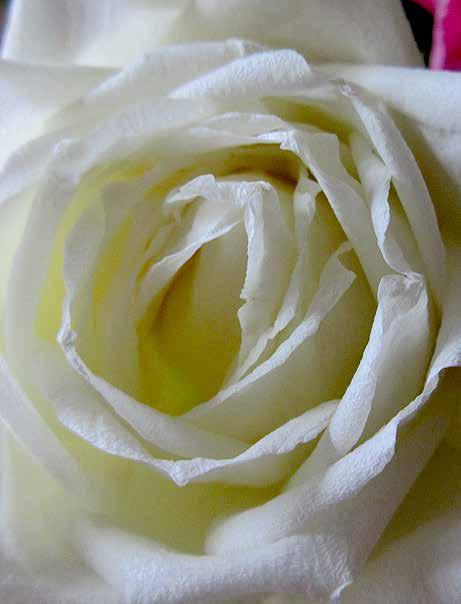
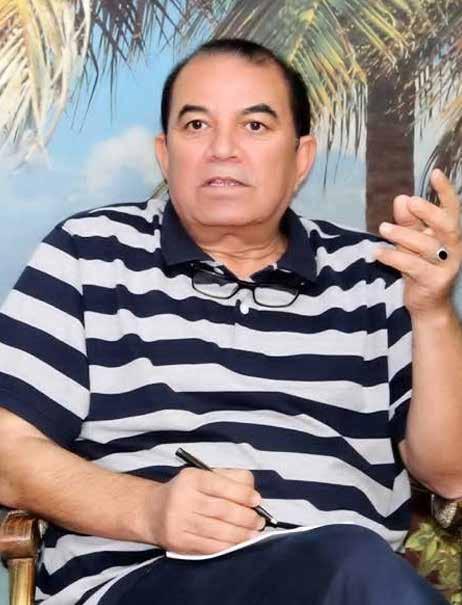
Ahmed Nabawi is an Egyptian poet and academic. He deals with humanitarian themes in his poetry. His poetic career began early in the nineties. He has five collections of poetry: (Testimony of Love), (Wounds Have Tributaries), (Flames of Questions), (Scenes from the Refugee Camp), (The Brilliance of Colors), and two collections in print entitled (An Ant Said - The Doors). In addition, he has a collection of critical books, including The Poet’s Culture and the Production of Significance - The Poetics of Small Details - The Contemplative Tendency in Andalusian Poetry - The Heritage Tributaries in Andalusian Poetry.
A man without a head
Walks And behind him
A people without their heads They reproduce.
A man Without a head
Walks backwards
He treads upon the ruins of ages And digs through the days For images
Of an ancestor like him
Sources have told That thousands of innocent victims
Left life at his hands And that...
A man from ancient times
Leads the morning engine With lightness And pulls the train cars
Backwards
A man
Moved by his hands
Have you ever seen
A man Without a head
Walking?!
I hear his sobbing as he sings And both of his hands are hanging on the door He never leaves it He is trying hard to laugh He opens his lips But the muscles of his cheeks do not obey him He tries But it is a withered laugh Extinguished.
***
- O man: Your days have decayed And time has withered on your forehead And your beard has aged From how much it has soaked in your tears - O my son: Since they entered And closed the door And I am at the door.
***
I tried But it did not open And did not respond. ***
At the door
The rust of days has accumulated
Barricades of misery
Locks of pain
The bleeding of wounds
Chains of helplessness circle around him
And our friend
At the door has not left
Has not departed And has not disappeared.
In the house
I extend my hand to the food
I see in the plates
Our friend’s tears
And his melodious voice
I curl up inside
I open the window of imagination, hoping to...
I hear my wife shouting, complaining
And I see our pious elder
Throwing his garbage into the street
And our devoted guard
Steals from the garden
And sells its fruits in front of the mosque—
After he prays the evening prayer—
While he thanks God for his lawful earnings
The voice of our annoying neighbor
Who never stops screaming day and night
Pulls me out of my window.
I flee towards our friend
Standing by the closed door
His voice comforts me
As he sings:
His stone house is made of flower And its ceiling is the joy
The loved ones have vanished in the corridor of its allure And in the fields of light
No matter how deeply they delve into the light
They have not departed From their overwhelming charm
They stretched out their arms And closed the door
Since then I am by the door
They have not returned Nor have they opened it.

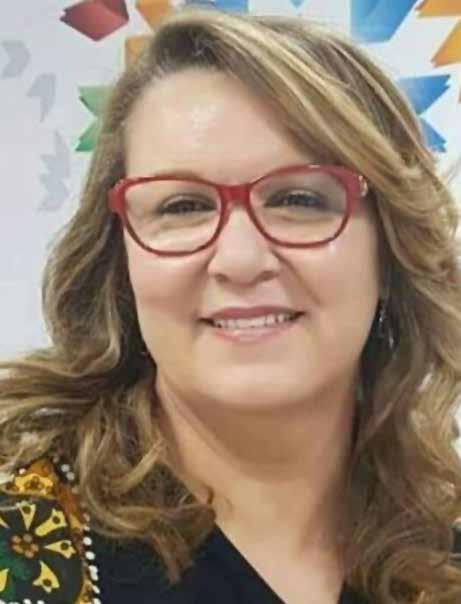
Aicha Bassry is a Moroccan poet, novelist, and storyteller. She has published several novels and poetry collections. She also won the International Prize for the Novel, Kateb Yassin (Algeria 2016) for the novel (Greta Garbo’s Granddaughters), the Simone Landry Prize for Women’s Poetry (Paris 2017) for her Divan (The Bathers in Thirst), and the Prize for Best Arabic Novel for the year 2018 (Sharjah Exhibition - United Arab Emirates). Her books have been translated into English, French, Spanish, Italian and Turkish. In addition, she has participated in many Arab and international cultural events (book fairs, festivals, and conferences).
(Every woman for herself)
To leave the bed
Without searching for an arm that embraced your night.
To enter the bathroom
Without stumbling over wet towels
Or mistaking the only toothbrush.
To gaze into the mirror
To comb your hair
To shake off the lingering sadness in your heart
To arrange the collar of your dress
And to admire yourself:
“How beautiful I am without the eyes of a man.”
To say to the sun:
“Good morning, light...”
Without drawing the curtains of chronic depression.
To enjoy the rhythm of the monotonous coffee bubbles
As they boil in the silence of the spacious house
Without running your hand over the silk fabric with a sigh: - Why didn’t I put out two cups?
To contemplate from the kitchen window
A lonely woman on the opposite sidewalk
Rocking the wait for someone who doesn’t come
Without whispering: That woman resembles me.
continued overleaf...
And indifferently, you turn your gaze Away from the scene of lovers exchanging love Without feeling a pang of nostalgia.
To start your day with a silent cup of coffee Without your eyes shedding tears.
To listen to the morning news Without remembering yesterday’s dreams
To follow the weather forecasts Without guessing that a rainy storm Will delay someone from the evening appointment.
When you sit at the desk You scold your fingers every time they attempt To open the email or Facebook You plunge into the blankness of the paper Then, You start writing a poem In celebration of solitude With just one condition: That you do not cry.
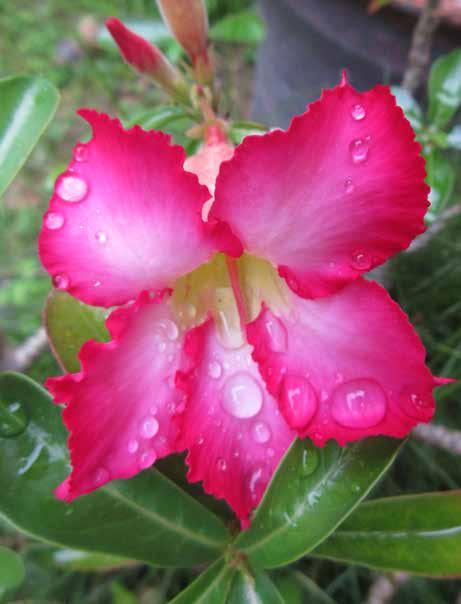

Ali Al-Hazmi (1970) is a Saudi poet who obtained BA from the Arabic Language Department at Umm Al-Qura University in Mecca. His poems were published in Arab newspapers, magazines and many specialized cultural periodicals. He participated in reviving many poetry evenings in many local literary clubs, literary festivals and forums in a number of countries around the world. He has published nearly seven poetry books. Moreover, his poetry collections have been translated into French, English, Turkish, Romanian, German, Spanish and other languages. Al-Hazmi, also, awarded national and international prizes, among them: Poetry Prize at the Uruguayan Poetry Festival 201, The Grand International Prize of the International Poetry Nights Festival in Romania 2017, “Verbumlandi” International Poetry Prize, Italy, 2017, “Best International Poet of 2018” award from the International Poetry Translation and Research Center in China (IPRC).
I never turned to the past, I walked toward my tomorrow
Wrapped in clouds and light rain
I listen to the melody of life as if I were born at dawn
And I did not ask about those who shared my wandering dream
About those who fell into the pulse of my wounded song
Who walked in the wake of the anthem’s rhyme
And awakened a slender flute in the depths of the soul.
I never turned to the past, I walked toward my tomorrow
Advancing my steps, racing through the paths of dreams
A child of my pains, I step and open a smile for the light in his eyes
Clinging to the wing of a song, I soar behind questions that overlook absence
I chose from the flock of metallic faces to gaze into the void
And to initiate my residence outside as I see my shadow there
Clearly at sunset.
I never turned to the past, I walked toward my tomorrow
From the first cry before the call of those who passed from the ancestors
In my language, I was born, I was born from the wombs of the thirsty deserts
To the dew, I embraced the shawl of the wind in its wandering and drank
From a thirst that looms over the chants of the horizon.
But I have never bowed to the shade of a cloud that crossed
The wasteland of the soul and the distant yesterday.
I am the heir of confusion and memory
Residing in my free absence, bound to the snare of dust
I am the guardian of dreams from their tomorrow
And the priest of my first and last desire
I lean in my night towards a twilight enveloped in confusion
Captivated by the dwelling in the echoes of silence
Lightening the burden of the weights of existence
Nothing matters to me to touch in my imagination its shade
A phantom I see whenever I spoke to my face
In the mirrors of my solitude at dawn.
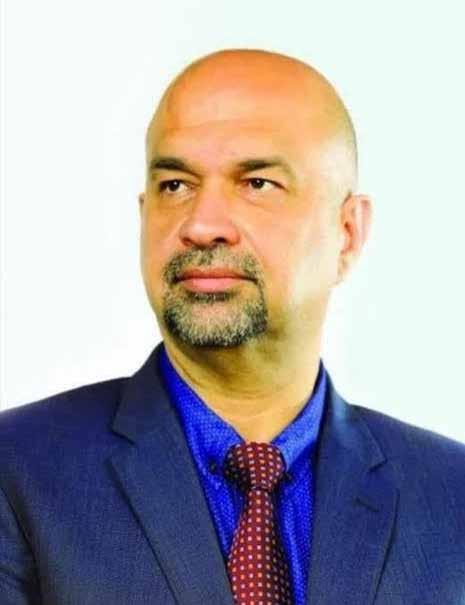
Ali Al-Shalah (1965) born in Babylon, Iraq. He obtained a BA in Literature from the College of Arts, University of Baghdad, 1987 and an MA in Modern Literature, Yarmouk University, Jordan, 1996. He also obtained a PhD in Philosophy and History, University of Bern, Switzerland, 2007. Furthermore, he published five poetry collections and five books on criticism. He was the Founder and President of many cultural institutions, events and festivals, including the following: The founder and president of the Swiss Arab Cultural Center in 1995 and Al-Mutanabbi International Cultural Festival in Switzerland in 2000, President of Babel House for Cultures, Arts and Media, with two branches in Baghdad and Babylon, 2003; the founder and President of the Babylon Festival for International Cultures and Arts 2010, Chairman of the Culture and Media Committee in the Iraqi Parliament in 2010; and the Chairman of the Board of Trustees and President of the Iraqi Media Network 2014-2018.
My hands wept over hers
When she was about to gather her remnants
From the shade of my soul
She turned her gaze
In the desolation of the walls
Searching for salvation in her coldness
I calmed the walls
So they would remain captive to their silence
While the winds of that hand sang for escape
I didn’t know until today
What the pain of the wall truly was
Until I saw its ice weeping
But constrained by dignity
And all the storms spoke within my blood
So I fell silent from the overwhelming Dialogue.
After ten years... I will not sit in the poets’ café, Nor in the artists’ taverns
I will not contemplate the minaret of the ascetics
Nor the feasts of my indulgent friends for worldly pleasures
I will not rejoice in the tales of lovers
Nor will I hold the door for Zuleikhas who are reborn.
After ten years
I will not read the news of the victors
I will not weep at the shrines of the defeated
I will not contemplate the colors of paintings
Nor the dreams of the portrayed
I will not smile at lovers dragging Their instincts in the squares
I will not build a house inhabited by others
Who curse me in it and bury the names of the builders.
After ten years
I will not walk
I will not cry
I will not laugh
I will not sing
I will not live...
I will die at the door of death alone
Refusing to leave me for a few seconds
So that my limbs may grow in this world
My language, my sighs will not help me to be exempted I scream in it and in me
Why today?
Why after ten years?
Why death?
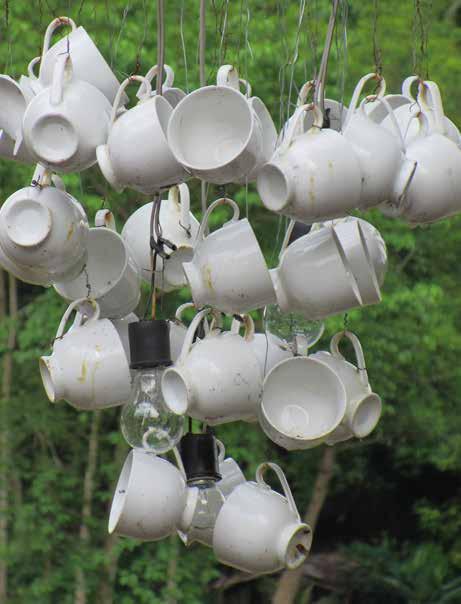
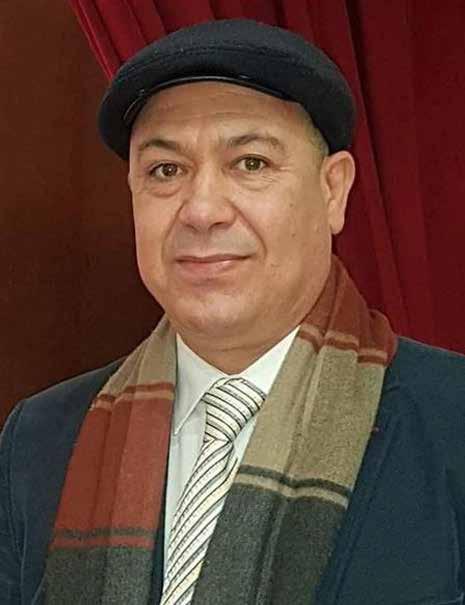
When she spotted the first kite in the sky, she realized it was summer; it returned with its beautiful kites, but her father did not return. He promised her he would make her a kite from reeds, decorating it with all the colors she loved, then he left quickly and did not keep his promise!
She remembered her father; she wiped away a tear that escaped from her eye with one hand, and with the other, she waved to a kite soaring in the sky.
Despite her brokenness, her sorrow for her father quickly dissipated when joy blossomed in her heart, flowers sparkling in colors resembling the colors of the kite on the horizon.
She followed it passionately as it danced before her among the clear blue summer clouds, fueled by hope and longing. Every time she examined the sky, dozens of kites appeared to her; it was hard for her small heart to count them, but it raced faster, almost escaping from her chest, soaring high with these amazing flocks!
She jumped like a bird that had never flown before; she failed. She tried again with determination, hoping to catch one, to reach a dream that had been haunting her since she spotted the first beautifully colored kite in the air, its long tail carried by the wind, playing on the bells, making it look like a bird flapping its wings!
But she was a girl; kites in our village are only for boys, just like orphanhood and poverty. Obstacles stand between her and flying, to grasp with her small hand the string of a kite in the colors of the flag: red, white, and black.
That night she dreamed; her kite soared before her sleepy eyes. The dream grew, becoming gigantic, the size of her room, her world.
She could see nothing else in the dark; it had taken over her and her tender heart. And when he realized that his little one would not calm down until she achieved what they both longed for, he surrendered to a sweet sleep with her!
The morning awakened her gently, with the warmth of a sun she had never known before; she carried a small cob, telling her mother as she climbed the stairs:
- I will gather whatever eggs I find and change the water for the birds.
She did not wait for her mother’s response; she hurried to the roof, scattering corn kernels on the ground. Although the chickens were still locked up, they made a clucking sound that indicated hunger and thirst. She paid no attention to the birds! She was watching her dream in the sky, searching for her plane, while the time was still early, and sleep reigned over the neighborhood children.
She picked up one of the corn cobs scattered on the ground; she tied a strong rope around it, spun around holding the end of the rope, every time she tried to throw the paddle far away, whenever she made progress, she felt her goal was getting closer, that she would not sleep that night until her beautiful plane was in her arms. She began to devise the plan, setting her traps; she prepared for the precious hunt, with only the first plane rising in the horizon left to wait for. Her heart quickly leaped with joy, as the first plane appeared before her eyes calling to her. Its bright colors and stability in the sky dazzled her mind. She curled up around herself, hiding her head between her arms like a hedgehog, watching her prey with piercing eyes, her poised arm like a snake, waiting for the right moment to seize its prey.
The plane’s thread in the sky resembled a large arc, drawing closer to her, becoming nearer than she had anticipated; she fluffed up, launched her projectile, in the blink of an eye, she wrapped the paddle around the thread several times, managed to catch it, and began to pull it towards her with strength. The faster she pulled it, the closer the plane came, until it crashed onto the wooden roof of the chicken coop. She tried to remove it, it broke free, falling near her, the shock stunned her; its paper had torn, its bright colors lost, it became a skeleton of bamboo, she cried as she had never cried before, while the hens in their confinement ran in fright, the continuous crowing of the roosters tearing the silence!
She lay on the ground for a long time, sad, frightened, exhausted; she had been battling the winds, the taut rope, the airplane that was difficult to control, its owner who was trying like a madman to scale every height that might allow him to spot the wretch who had shot down his plane, yet he could not see him, did not know where he was, and could do nothing but curse him, vowing to hang him like a rat by its tail!
She crawled on her stomach until she grasped the airplane; she wiped her tears and examined it as if it were a precious treasure in her hands! A torrent of questions was tearing down the walls that isolated her from the world. How would she fix her airplane? What would she tell her mother? Did the boy find his way to her house? How would she escape from him?
“No one will take away the dream I have wished to fulfill for years.”
She tried to mend what had been torn from her, gathered her tattered papers, glued them until they were close to their original form, then sneaked into the house, hiding them from her mother to avoid her questions. Each time someone knocked on the door, she was seized by intense panic!
She did not sleep; she spent the night pondering how her airplane would soar in the sky, as she had dreamed for years of “dancing with a large cloud above it.”
With the dawn of a new day, she walked with her dream on tiptoes, climbed to the roof, placed the airplane on the ground, and imagined it flying. She felt content, elated in her innocence, while her imagination stubbornly refused to become reality!
She was enchanted by the sweetness of the experience; she entered a world without deprivation, where she was a queen. She jumped, rising higher, as if she were on the moon, and her airplane ascended with her. She gradually loosened the string, allowing it to travel far, penetrating the sky; now happiness was complete, and she held its silky threads.
She could hardly believe her eyes; it was far greater than her mind could comprehend, her heartbeat quickened, and her emotions swayed between joy and fear as the airplane soared higher.
She tightens the thread with her fist, shrinking and sticking to the ground for fear that someone might see her, then happiness overwhelms her, and she lets go of the thread, sending more to the plane. Her hands tremble when the plane appears smaller; she grips the thread tighter. The plane flirts with her with its graceful dances, as if trying to tease her eyes and send joy her way. There is a love and passion that has grown between them, a passion she cannot express, and a silent joy releases all its trills within her small chest, making her feel a shiver of happiness shake her entire being and steal her mind away. The plane does not relent and teases her with its dances to the right and left!
The plane moves away and shrinks; she tightens her grip on the thread, staring at the plane as she sees it fade away. She looks at the thread in her hands, squeezing it with both hands, while the plane sways from afar. She realized that the thread had snapped; her plane was free, unbound, delving into the distance, falling!
She tried to catch the thread, jumping on her hands and feet; she could not find the end of the thread. Muffled screams tore her aching heart apart. She jumped powerfully without aim, catching a glimpse of the thread’s end near the edge of the roof. She summoned all the determination she had left, which was nearly fading, and her waning strength, hoping to save her dream from loss; and she leaped like a small bird trying to escape death, but she had not mastered flying yet. The delicate body falls, crashing onto the ground of the skylight, while the small hand still clutches the dream!
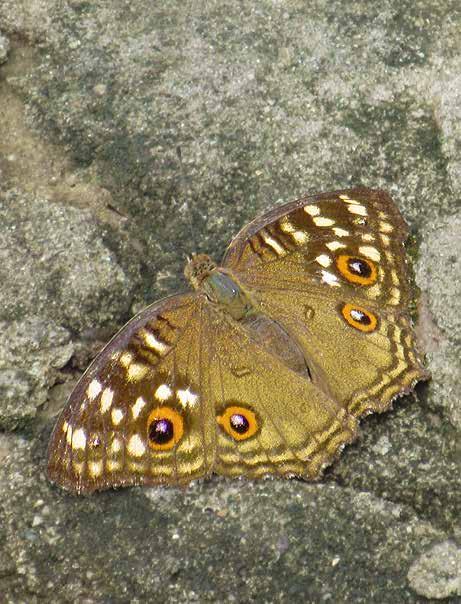
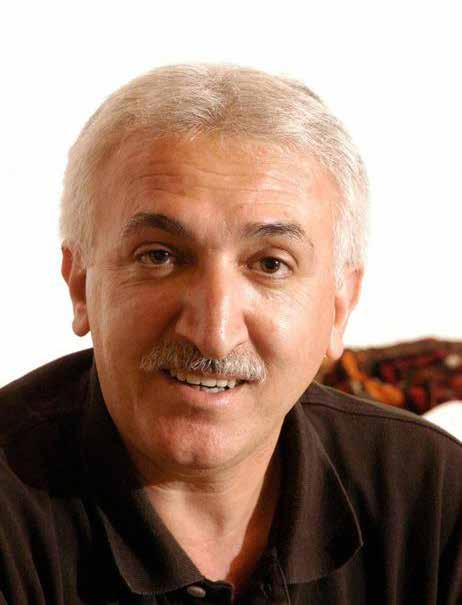
Al-Mothanna Alcheikh Atiah, a Syrian poet and novelist, was born in Deir ez-Zor - Syria in 1953. He graduated from the College of Agriculture in Damascus in 1980. He published a poetry collection for Dar Al-Haqiqat in Beirut under the title “Yes, there is More” in 1979, and a collection of poetry under the title “Mouth of The Rose” in 1989, and a novel under the title “Lady of the Kingdom” in 2006, from the Arab Foundation for Studies and Publishing in Beirut. In addition, he published a critical book under the title “The Poetic Rhythm of the Intifada” in 1990 from Dar Al-Aswar in Akka. He worked in journalism as managing editor for cultural affairs in Al-Sharq Al-Awsat newspaper in 1984 and managing editor of the new Shahrazad magazine in Cyprus in 1990.
With a proud shimmer atop the mountain
Before the child
A red dot for the embrace of earth and sky
And does not reveal to him to which of them it belongs
A captivating seductress that freezes his heart with chains of fire
And quickens the flutter of his wings to what precedes the light
And stands waiting
For his arrival in the form he chose after the ice of the cave/
We are climbers of the mountains of doom
We have prepared the thorns of our feet for the ascent and to attain it
Just as golden cups are harvested after running marathons
Just as pearls are plucked after breathless moments in the depths of the seas
Just as a bride is snatched away surrounded by merciless cousins
And just as every heart hides its imagination from others
For her...
We are climbers of the mountains of doom
We have sharpened the teeth of our gear for ascent
Enthralled by our dreams, illusions, and ambitions
Our muscles charged with the confidence of the rock we tread
Our skins tanned by the coming frost to bite the flesh
Our maps erase the mirage of loss on the fringes of the stars
Our popular books unravel the mysteries of the wilderness and the fangs of the bends
And our songs nourish us when we despair with hope
That people before us have plucked
The lady of the stars
From the mouth of doom...
continued overleaf...
On the long path of our clamor that we climb
We gaze with envious eyes at one another
Among us, the unknown mock our names and our attire
And they pass by, indifferent to our disputes
Among us, the famous who have plucked it and the spears in their hearts
Climb again with us
Because whoever has tasted it will be deprived of the flavor of forgetfulness
Among us, one has become a shrine for its lovers
One who drew it as a red star on his cap
One who transformed himself into a white rose and a bottle of water,
sealing the mouths of rifles
One who accepted to have his tomb eaten by the guardians of darkness
To remain a light in our hearts...
On the path of doom, we pass through the barriers of upbringing, taboos, and coercion
Pointed by the riddle of the monster’s question about humanity
And with its blades preventing us
Pass by the mountain mirrors, set up wherever we turn in front of us
Terrifyingly displaying our images in the fangs of torment
In hell, we are intoxicated on skewers held by the priests
In hell, our skins are melted by the calculators and grow back to be melted again
Hanging by the hooks of our screams that bounce back to us
Stunned by the glass of the man who watches us
We pass by the mirrors of our torture in prisons
Whips that skin our flesh
Batons that shatter the vertebrae of our backs
Fire, electricity, acids that dissolve us
Stakes and mallets that crush the organs of our fertility
Rapes of our women, our girls, our boys, and our men in front of us
We pass by the mirrors of our abduction
By the fangs of the road and our honor
We pass by our mirrors, eating each other
On the path of confusion toward it...
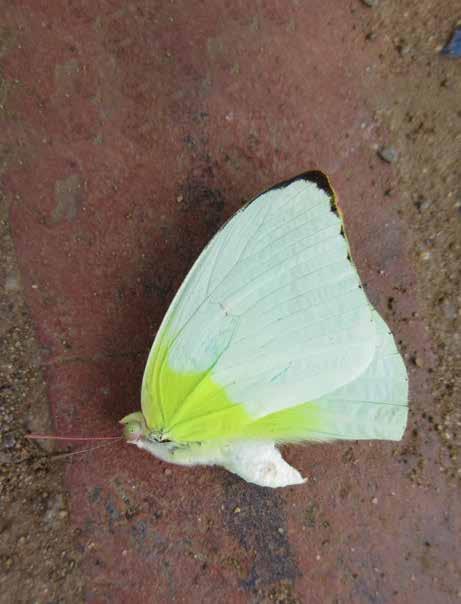
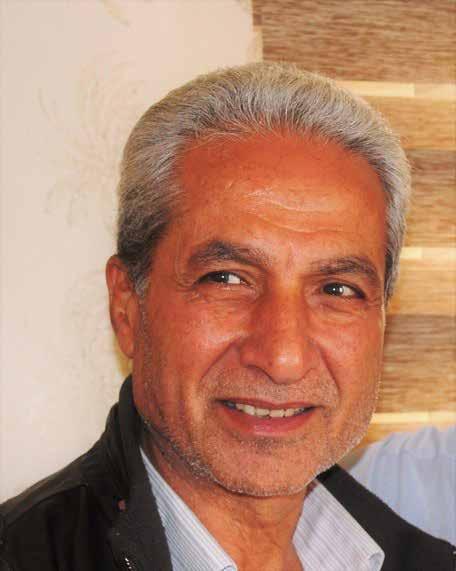
Asaad AlFakhry is a Syrian poet and critic residing in France. He has published four books, in poetry “The yearning of desire”, in literary criticism “The Narrative of the Senses”, “The Image of the Armenian in Arabic Literature,” and “Psychoanalysis and Literature”.
Rise up
Beasts of Nero
Surrounded
By the embers of the hearths
To witness
The slaughter of your bleeding celestial bull
The lamentations of Dante’s sad Hell
On the marble
The eternity of Purgatory and the gardens of its gentle breezes
Here you are, Nero
The loaves of Utnapishtim, deep in
The distant
Where the drowsiness of the pliable Gilgamesh
And his tigers
Are wrapped in the suspicions of the timings of the loaves of slumber
And the prayer
Of the blind trap of the temple at sunset.
***
Your praise
The toast of death on the balconies
Is hanging with
The limbs of Achilles
And your skilled fingers plunged
To its end
Here is Nero
You slaughtered the air in the throat of the whale
And you placed me in the vast
Patience
A mirror for Jonah who swallowed
The breast
Of the whale and slept on its generous amber lap.
*** continued overleaf...
Drowning
I am the abyss Between Your blood-stained palms, and I am The fallen Like a drunken boy singing beside The flames
Here are your feeble steeds Exchanging Thunder for lightning, no land above it Nor Sky beneath their hooves To take refuge.
***
With the mallets of thunder We will shatter the mirrors of lightning with the blood Of the passersby And we will break the legs of your steeds at The maelstrom of despair Whose lights are traps for deception And a lament for Amber That does not illuminate With the door of bewilderment, locked With the keys of the longed-for scream whenever The phoenix spreads Its damp wings in the flames of Nero’s fires That mourn along the paths.
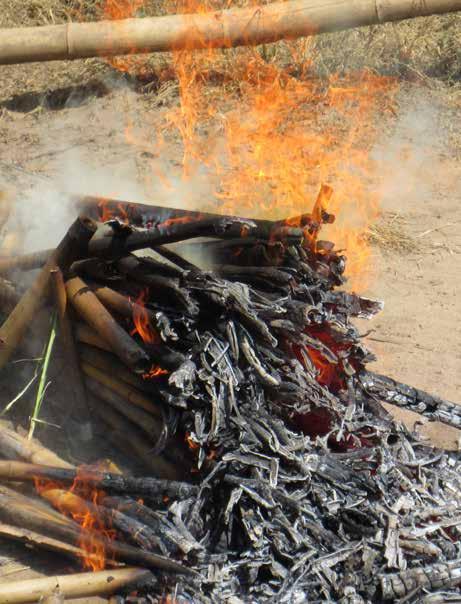

Aziz Azrhai (1965) is a Moroccan poet and visual artist. He published eight poetry collections. He, also, held several art exhibitions inside Morocco and outside. In addition, he is a member of the House of Poetry in Morocco and a former official in its executive office.
The secret we buried
In the last century
Stumbled upon its brilliance
The horses of the archaeologists
They came, contrary to the usual kindness
Armed with instincts
Led by scents
To where doubt wafts.
They were like blind men without goals
Their boats colliding with the remnants of foreignness.
And just as we left our beds
In fright
They turned back
As if lightning
Led their cores
To where the deposits cool.
And in another conversation
We descended together from the tribe of woodcutters
Celebrating solitude for the highwaymen
And casting our nets in lands without fish...
continued overleaf...
Each of us has his secrets And reasons.
We forgot our footsteps in another century When we crossed the bridges of disappointment Toward the dictionaries of maps And dreamed of pruning joy With scissors that do not cool. We are now on the bank of doubt And they, like us Are on the other bank.
Perhaps they finally understood That life is a maze with doors and locks.
That wars are the gambits of gamblers On the treasure of deceit.
That enemies are not entirely bad.
The truce is a trap that sleeps In the pouch of friendships That bullets are the spoils Of those expelled from the tables of want.
That the dead are harvests drying In the fields of books.
That condolences are a monotonous song That enchants the sorcerers.
Perhaps they finally understood that The orphans going to school On a difficult day Do not laugh at anyone.
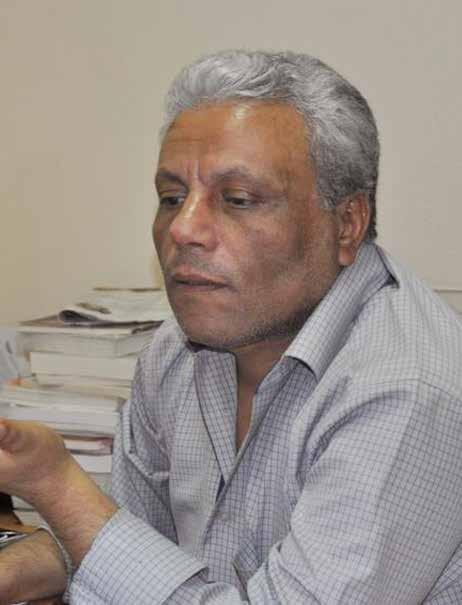
Azmi Abdel Wahab is an Egyptian poet and journalist. He published eight collections of poetry, and his poems were issued in most Egyptian and Arab periodicals and newspapers. Moreover, his poetry is translated into more than one language, including English, French, and Persian. He, also, participated in many poetry conferences in the Arab world and won several awards from Egyptian cultural institutions.
I have grown enough
To understand nostalgia... oh “Zahia”...
And you have become an old woman
With no one knocking at your door
I wish I had kept your picture
Of you sitting on the “couch”
With your short black hair
Peeking shyly
And beneath your house dress
Two apricots lie sleeping
They were round
As if untouched by any human hand
You have changed so much
I have changed so much
I have faded to the point that you won’t recognize me
For here they light candles at night
Because foolish men
Tore the clothes of a woman
How many men
Have torn your clothes, oh poor soul
Then they left your shabby room
After you granted them joy and manhood
Oh,
Fifteen years of absence
Have surely worn down your face
And no one visits you anymore
Not even your daughters whom you taught
How to bring happiness to passersby
They only come to see you in festivals
And you bear no anger towards them
Nor towards me!
Because you know
That I have grown enough
To understand nostalgia, Zahia.
In this small house
We opened the doors for singing
We left a tree peeking through the windows
We wiped the floor well
And rearranged the clothes in the wardrobe
We washed the shade plant with water
And removed the spider webs
From the dark corners
We set the sun at the table
It was happy
We told it about death
In a small house
In distant lands
And it cried
The air was fresh
And the sheets were clean
And a scant moon illuminating the faces
We slept deeply
As if we had never known sleep at all
And in the morning we woke up
With blood on our palms
And the smell of decay in our bodies
Where did all these corpses come from
To occupy the rooms crowded with life
And leave us in the void?
And no home for us?!
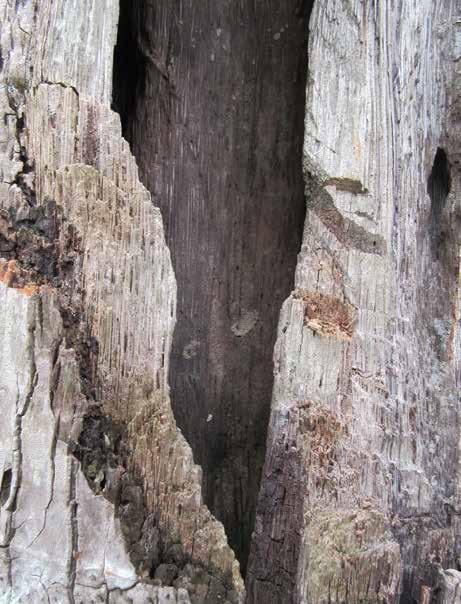

Habiba Mohamadi is a well-known Algerian poet, writer, and academic who writes modern poetry and opens her text to experimentation between the flash poem, the painting, the fragment, and the epigram. She has many poetry collections and has a long history of writing for the Egyptian, Algerian, and Arab press. She has several collections of poetry and intellectual works. The most famous of them are: “The Kingdom and Exile,” “Fractures of the Face,” “The Overflow of Exile,” “Time in the Open,” “Anklets,” and other works, and some of her works have been translated into foreign languages such as English, French, and Spanish. And her latest intellectual publications: A book about the relationship between poetry and philosophy in philosophical thought, with “Nietzsche” as an example, entitled The Lust for Wisdom, the Madness of Poetry, issued by the Egyptian General Book Authority. She was honored in Algeria, and in several Arab and foreign countries, including, but not limited to, an honor from the Supreme Council of the Arabic Language in Algeria for her excellence in writing in the Arabic language and her efforts to preserve it. Her last honor was from the General Syndicate of the Egyptian Writers Union in 2023, and she was awarded the Union Shield as the first Arab writer to receive the Egyptian Writers Union Shield.
(1)
I live travel once
The alienation of times lives with me twice
Once when I descend into my essence
And once when the self divides into halves!
(2)
O estrangement of the soul, to whom do I go?
My hands are tired from digging in the water
And the water is tired from my palm and my imprint
O estrangement of the soul, to whom do I go?
And all that I have is not mine
Some for the cleansing of the soul with sin
And some for my explosion at the moment of revelation!
(3)
I wash the soul
I present it to the depths of the people
When they wet their veins with the water of estrangement
I became a poem presented to
The Nile of the land!
(4)
Say, if the sea of my words runs out
The lineage of my wonder will not run out!
(5)
Why, whenever a stranger asks about a home
They direct him to me? continued overleaf...
(6)
Between the dead and papers I crave patience A game at the New Year
A kiss from my father so I may grow And something from you so I do not die!
(7)
I am not firewood But memories consume me!
(8)
The dead die and the home empties of me!
(9)
The house where our shadows embrace I saw it yesterday lifting its head For the spiders to weave their longings!
(10)
Birds peck at this head
As if the world is my nest!
(11)
We are all two-faced But the soul is not a third!
(12)
Every day I try to wake up early So that the dream does not become longer than me!
(13)
My toy that I “long for” in childhood was a grave Is it a sin to die twice?!

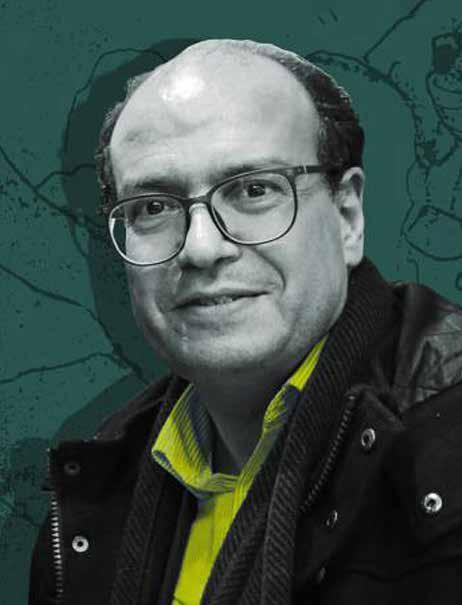
Hassan Najmi (1960, Ibn Ahmed, Settat province) is a Moroccan poet, author, and journalist. He was The President of the Union of Writers of Morocco between 1998 and 2005 and the former head of the House of Poetry in Morocco. He is also the President of the Moroccan Center for the International PEN Club and the Secretary General of the Argana Prize for Poetry. Furthermore, he founded the House of Poetry in Morocco with a group of Moroccan poets (December 1995) and was elected vice-president and spokesperson for the House. He received many Arab and international awards, and his works have been translated into more than ten languages. He has also translated into Arabic the poetic works of several of the world’s leading poets.
Name this river after me
For I am drowned and my hand is pure like a poet’s hand
The river’s water in my palm
A bed of greenery dreaming, here on my balcony.
On the balcony
I look at the river passing there
My feet touch the water.
On the balcony I look towards the river—
And Sarkon* asks me, is this the river of your forefathers?
I say: perhaps—
And I do not know if my ancestors had a river!
(The desert was their profession and life)
I know you, river, you were a drop—
Then you burst into tears.
Here near the river
I water my eyes every morning and renew my gaze
Come let us love, my house is not far from the water
Next to the grass and the trees and the bleating
Our hearts are fierce in secret
We thirst for the distant spring
To this stream towards us
Come let us sing the world with kisses.
continued overleaf...
Here are your waters gently caressing the banks
Getting closer to the edges to lean on the color of the soil.
I gaze today as well—
The river is there between two greens
Between two cities
Between two lives
Like time that ages Ferments
Delights like wine
Has its narrative about the history of kings And soldiers And the dead
It has unforgettable tales with the rain, the flood, and the grass And it does not forget –But it does not speak. I look today as well—
I do not know how to exit from myself I know it is going there (I must be pointing with my finger)To drown.
From here—my eyes on the river Every day they swim in this line of lead Every day this sun is new.
Stay calm
Do not be fooled by the shadows of the sparrows
Rivers do not fly
Be wise
Wave your hand and move on
And quench your desire to stand like a willow tree
Rivers, only, run
Enjoy the journey
Listen to the whisper of the butterflies
To the heartbeat from the balcony
And in the metaphor
Do not trust your rustle
It will hide from you the bracelets of the girls
And the lovers’ laughter by the banks
And you will miss the moment of joy in the songs
Walk alone
Like a free line in a poem
Like a faint echo on the edge of a map in students’ notebooks
Pass by the bends of the reeds in my dream
And do not forget me.
* Sargon Boulus was an Iraqi poet, journalist and writer. Born in 1944, he died on 22 October 2007.

Kamal Abdel Hamid (1965) is an Egyptian journalist, essayist and poet. He has published seven literary books: four poetry collections, a book of essays, a book of texts, and a poetry anthology in English.
In the beginning, I say: I love you, and I hate my soul hiding in the shadows like a guilty child, the very soul that has ensnared me in love, caught in a web of silk and thorns. My weeping soul, unashamed before a harsh emotion that brandishes a stick.
I love you, as I passionately follow the cosmic stage; I do not sympathize with the villains as you do after every Arab film. The villains who despise the hero and the heroine and scheme during the story.
What should I do now with all this evil surrounding us? I must learn to hate deeply, to embody the essence of the dramatic conflict; it would not be fitting for someone like me to speak of forgiveness while ensnared by betrayal.
I lack the ability to hate deeply
Those with secondary and primary roles
I pay attention when the camera moves (Pan Left)
Because the director usually recommends
Showing the heart’s side
So that the viewer knows how much time is left
Until I fall, a loser
In that moment, I will die
In a (Close up) shot
My face filling the screen
I look deep into the frame
And mumble a single word
And people will guess the last thing I say
And curse open endings
It’s futile not to know that you are the last thing I say
It’s futile to be far away when the director applauds the final scene
But I will love you after the film ends
I will love you free from the necessities of the script
There in death, far from the backstage
And the roles we master for nothing.
continued overleaf...
I love you
As I move through the vehicle of my body from one floor to another, from room to living room, to a studio with an American kitchen that I only use rarely.
I love you
Here in front of the cold door, behind the demons of the window, next to the refrigerator of disappointment and the corpses of despicable friends, in the selfishness of the streets that hide your voice like gifts that cannot be returned. Here in front of the suffocating keyboard covered in cheap ash, ash that I gather in my lungs with an infinite passion, on the seat that endures me reluctantly as it listens to a song, I repeat twenty times a day, in the despair that drags me by my shirt, and the sunken ships between my fingers.
I love you
The moment my friend stops complaining, in the seconds that separate one comment from another, in the distraction of the bar that arouses the curiosity of the sad, in the glance cast on the tables in search of something that does not point to you, in the fleeting and deep cinematic kiss, in the coquetry of the heroine when she goes off-script, so the director praises her mischievous nature, in remembering your deep tenderness, your childish anger in front of women who passed through poems without a delicious pain.
I love you
In the losing stories, and the similarities between you and the lovers of dead poets, in my fleeing steps to any direction, under the ceiling of coincidences, in the diaspora written on my forehead, when mixing coffee with water, in the first and last sip.
I love you
When my mother cries on the phone asking me to come back, and I can barely hold back my tears before God as I ask Him for steadfastness in love.
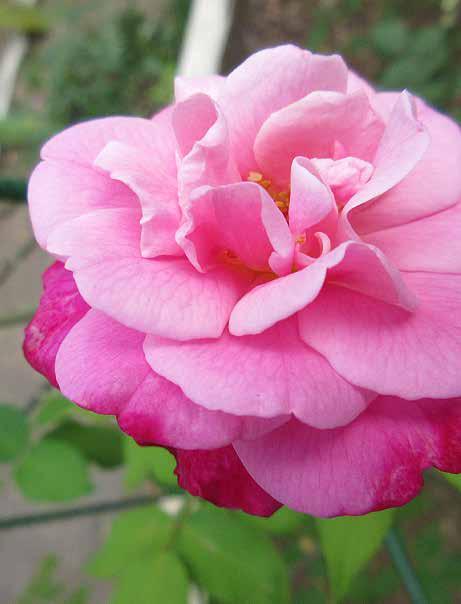
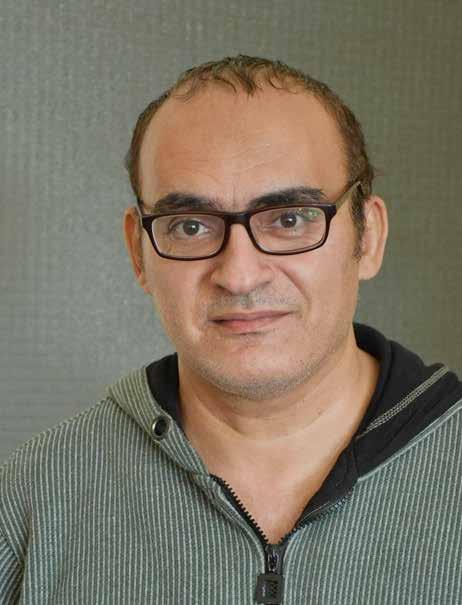
Mohamed Baraka (1972) is An Egyptian novelist, storyteller and journalist. Critics classify him as one of the voices of renewal and modernity in modern Arabic literature. His works raise controversy on the literary and social levels, and his writings receive remarkable attention. His novels include “The Lady’s Pub,” “Ghosts of Brussels,” and “Ice Heart in the Other World.” His short story collections include “My Grandfather’s Mistress” and “Sadness is a Sleeping Child.”
- Señor Alaa?
- Yes.
- I am an Italian tourist currently in Cairo, and tomorrow I will arrive in Sharm. I need your services for the remaining days I have in Egypt.
- With pleasure.
- I’m not sure if you understood me well; I want you to be completely available for me.
- How many days is that?
- Five.
- Let me check my schedule, then I’ll get back to you.
- Ciao.
- Ciao.
August brings everyone heat and peace. The season hasn’t started yet. The place is quiet at this time of year, but I responded to the client in a way that meets the requirements of professional “prestige.”
- I’m sorry, but I can’t wait any longer; I need to know your response now.
The Italian, a girl of the streets with fiery blood, gets it; a being not easily fooled. She returned to rush me after three hours, the maximum time when she pretends to believe she has bought your story full of bullet holes.
- Okay, I will be waiting for you.
She was in her twenties, not belonging to the usual pattern of clients who often play in the middle age range between thirty and fifty. A name that suits her with the purity of her skin and the glow of pearls in her green eyes. And what about that thick hair, as if she had stolen half the girls’ hair in Milan? Embracing waves of soft strands where brown dances with red to give that unique shade. She removed her clothes except for one piece underneath and whispered:
- Surprise me!
Every profession has its principles, and one of the principles of my profession is not to ask the client about her private life or to convey anything that could be interpreted as her visit involving a strange act or suggesting suspicious behavior. I must embody the modern version of the “Sphinx,” a being stripped of curiosity, devoid of the weight of astonishment, and unaffected by the clause of wonder. I dug deep into a narrow hot well without my goal being an oil explosion. Digging is a sacred pursuit in itself—something akin to what the “poet of resistance and beauty” once claimed: “the way home is more beautiful than home.” I savor lips that taste of pleasure, but the message reaching my mind indicates a confrontation with a plate of “old cheese” played by some worms.
What led a young beauty, a violinist in a global orchestra, to seek my services? No one has broken her heart, nor does her body language in bed show any signs of revenge against a man or even a woman. So why did she choose to seek a paid climax?
I lit a cigarette for her, enhanced with a type, as her appetite opened while she took the first puff:
- Sleeping with a professional was the last item on my list of the craziest things I dream of achieving before I die.
I asked cautiously:
- How many items are on that list?
- Twenty.
I wondered again, concealing my astonishment:
- You managed to complete the entire list at such a young age? You must be starting to create a new list?
She was struck by a sudden cough as she laughed, so I hurried to bring a bottle of mineral water from the “mini bar.” She drank, then returned to laughter as she said:
- I tackle the items on the list from the bottom to the top.
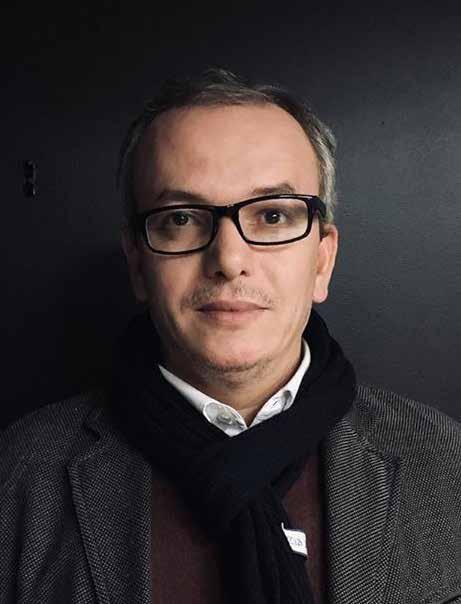
Mohammed Al-Kafrawy is An Egyptian poet, born in 1978. He has been writing in cultural journalism and literary criticism since 1998. He has four collections of poetry: “A Pink Dream That Raises the Head” (2006), “Shortly After the Dead” (2018), “A Suspicious Place” (2020), and a fourth collection entitled “Scraping Nothingness with His Nails and Giggling,” which is under print at the Egyptian General Book Authority.
Tell me, by God,
How many dreams have been run over by the speeding roads?
How many foolish parrots have trampled your dignity for mere amusement?
How many forbidden desires have gnawed at your body in the middle of the night?
Remember with me...
How many stray clouds have betrayed you and rained down on the heads of others,
Leaving you alone, naked, dreaming of the scent of winter?
How many socks do you have in your tattered closet?
How many wilted roses have I plucked from the garden of your days?
How many shadows have clung to your arm as you walked toward your doomed fate?
Tell me and do not be afraid...
Have you ever breathed the air of yoga players?
Do you really know the meaning of pain?
Do you find comfort in the laughter of children and their playful games?
Be honest with me...
Do you know what awaits you tomorrow?
Do you care about time passing or the days remaining?
Are you truly awake?
Do you desire more agony?
Do you count the curses etched on your limbs?
All these years have slipped through your fingers, And you are confused... alone... miserable... oblivious. Be honest with me and tell me...
You are humiliated to the bone.
Why then do you want to save the world?

Mostafa Ebada (1965) is an Egyptian journalist, poet, essayist, and critic. He works as the Deputy Editor-in-Chief of Al-Ahram Al Arabi Magazine. He is also the cultural advisor to some of the most important Egyptian publishing houses, such as The Egyptian Lebanese House, Al-Mahrousa Center, and Dar Batana. Furthermore, he published more than 10 books in different creative genres, such as poetry collections and cultural and literary studies.
Is this me?
I wake up with wounds on my body
And blue bruises
And marks of sharp teeth
Remains of frightened dreams and nightmares
Although before I slept
I settled my account with sadness
And paid it its full dues
And we agreed to part I willingly gave it
My verse, love, and friendship
And everything that makes it a master over hearts
And even though it seemed satisfied with the exchange
I also left it
Sitting in the front rows
To leisurely contemplate Its clean shoes
And take center position in the picture
But it left me with its soldiers
So I wake up from sleep
And find wounds and blue bruises on my body
And remnants of sharp teeth
And nightmares.
continued overleaf...
Yesterday
Socrates’ wife visited me
In truth, She asked to stay with me
And since I am kind
I left her the freedom to be silent or to speak With the door open In case she grew bored
Unlike my friends
I dislike “Julia Roberts”
And her perpetually beautiful smile
There’s something false about it
But Socrates’ wife is real And I genuinely love blood and scent I love when I leave the house
To think of not returning to it
But I come back I adore the women of the markets
And the cafés
Especially those with a light mustache
These are things that never die
And like any ancient Egyptian I am addicted to immortality
So, my friend Socrates Don’t be tedious
And let the bottle of poison
Be drunk by those fortunate ones Who love Julia Roberts.
This is me
My mother only warned me about two things
Cars and women
She bid me farewell at the train station, tearful:
I fear you’ll be run over by a car
Or a woman
My mother died
And I survived millions of cars
And airplanes
I crossed seas
I met Buddhists and sorcerers
Prophets and daughters of the night
And I returned to my mother
Run over
But she did not get angry or reproach me
She did not look into my eyes
Didn’t I tell you?
I fell from three floors
And my wrist was broken
The fire consumed my arm
My heart stopped twice
I triumphed in the battle of life
Until I reached here
I returned to my mother
In a state of being run over.
I do not love silent nature
It suffocates my heart
I saw behind the trees
Murderers and snakes
And in the thickets, a frightened moon
Sneaks between the leaves
I love another kind of nature; A naked woman, for example—
The chloasma of pregnancy around her nipples
The cries of a child
Preventing his parents’ solitude
I am the man who has never seen a tree
Or a rose except in books
And when he sees the sea, his tears flow
And whenever he sees a flower, he thinks it is a breast
And whenever he sees a breast
It crosses his heart:
I fear that a car will run you over Or A woman.
I wake up angry
I wish I could slaughter someone
Or disfigure a woman’s face
I kick the doors and the gravel of the streets
Without mercy
I spit in the face of everything That passes before me
Something inside me
Wishes death for everyone
Or for me to become a bullet
The chaos of the world resides in my heart
I slept yesterday without a heart
And without a hand to gather
What has scattered from me
And if I hear music
Your wasted scent invades me
And I did not turn it into permanent fields
As if I had suddenly matured
As if I had shed my scales
And my old thorns
And my teeth ready for killing
I was scared when I imagined your possible nakedness
When the water receded from trees and music
When the sky receded
Which had sheltered me for so long
And became narrower than a distress
And wider than the opening of a pocket
Where I like to leave my nose
Rest assured
“For that is just the nature of a love-struck person”
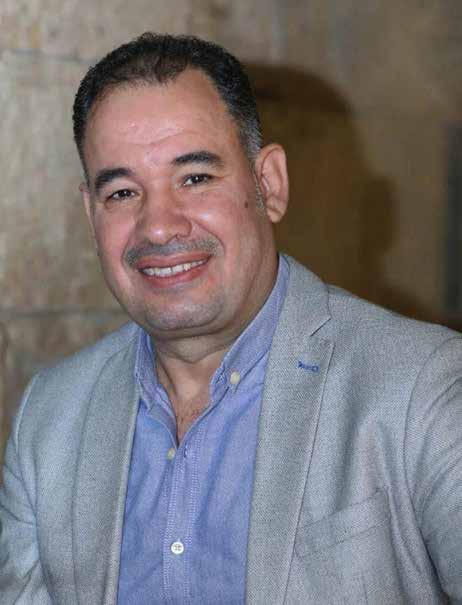
Sameh Mahgoub is an Egyptian poet who graduated from the Faculty of Dar Al Uloom. He participated in many major poetic and cultural events inside and outside Egypt, including those in Tunisia, Morocco, the UAE, Saudi Arabia, Iraq, Algeria, and Jordan. In addition, He participated in the jury committees of state awards, as well as obtaining several awards and honors, including: the shield of the Prince of Poets Ahmed Shawky, the Al-Babtain Award for his poem “On the Rhythm of His Laughter, He Walks”, the Atheer Award for Arabic Poetry for his poem “I Write to Defeat My Death”. He issued several poetry collections, including: “Nothing Equals the Sadness of the River”, “Digging with One Hand”, “The Metaphor of Water”, and “The Wind Explains Its Travels”, and some of his poems have been translated into French, English, Russian, and Spanish.
From a bus
Crowded with the dead
Children of the dead
I write to you
About my plump neighbor
Who sighed
And the clouds wept blood
About my solitary shoe
Which often
Stuck out its tongue
At passersby
On my behalf
About a flower
Neglected by the sidewalk
And drank from the honey of her breasts
Until it became intoxicated
I write to you
About the noon sadness
In August
About the eternal journey of the sea
About meaning
When it tightens like a noose
Around the necks of the poor
I write to you
Perhaps the sky
Will soften to my plight
Perhaps we...
Will meet by chance Then return And meet by chance Until we teach chance To betray its own law In longing Perhaps time Will turn its back To see us... Strip away day by day From light, joy, and courage I write to you While the old bus Ravages the earth And without a glance The drunken driver Drops us One by one Into the tales I write to you While the truth Is lost On the glass Of the stained window.
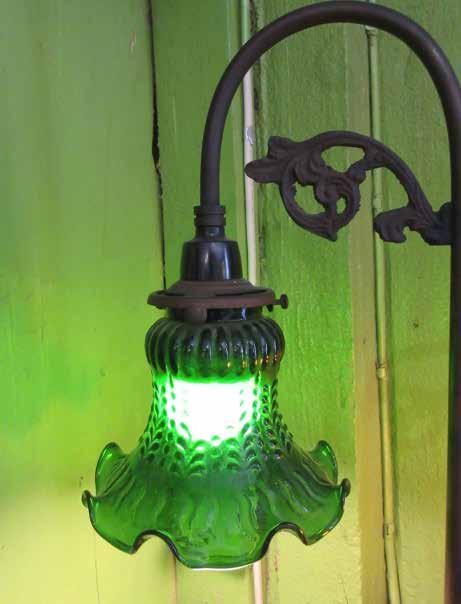

I do not break, nor do I succumb, nor do I shatter But I am anxious all the time I wasted my years jumping between the banks And in the making of legends And blind fantasies I climbed the highest mountain And dove into the sea of a story that Only children, madmen, and blue butterflies flying between you and me can read. I hide a rose in my hair And I hide my hair in colored fabric I hide in the end from myself
The whole tale is an escape in escape. I feel hungry, so I open a book I digest music at the speed of light I fast from speech for a time Sufficient for love or killing.
Because they were created for this fate
But I condense the matter
And write it from its end
What comes next is just an illusion in the trap of deceptive words
My words are like birds
Colorful and chirping
But their wings are weak
And their cage is large and spacious
And their imagination resembles a dog barking at shadows.
Nothing matters
The countries are falling and people
Tear each other apart
And the dreams, frightened, fly away
And I pour the tea and drink
And I close off, returning without direction.
Once, words used to kill me
Every word is a project of madness
Every meaning is like an unknown book
That only the sorrowful and the heartbroken touch!
But I have freed myself from the illusion
From dragging the letters behind me
Like hungry orphans!
I learned this glorious cruelty
I broke the pens and lifted the board above the mountain of fire
Your time is over, oh poetry
My heart has dried up
And your river that once drowned me
Its banks have fallen into oblivion.
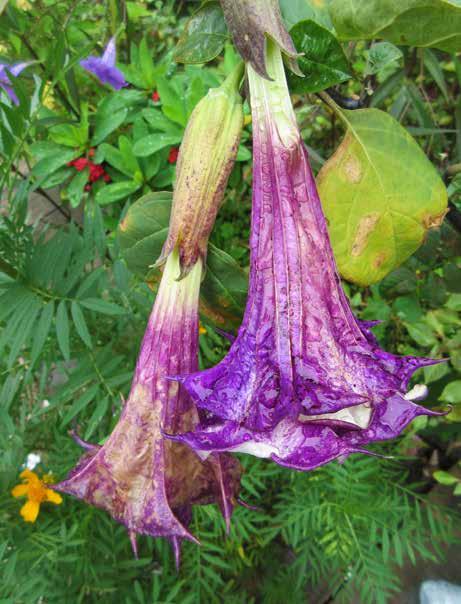

Sherif Saleh (1972) is an Egyptian short storyteller, novelist and journalist. He published nearly ten literary books and awarded several national and international prizes.
As I was drinking my morning coffee on the balcony, I realized that I had not put on my body. I couldn’t see my hand holding the coffee cup, nor the shadow stretching beside me! Where did I forget it? Perhaps it is still lazily sleeping in bed as usual, or perhaps I left it hanging on the nail behind the bathroom door after my shower! Or... or perhaps the light layer of steam during my shower obscured my vision, allowing it to escape from me. It slipped away from under the towel and vanished. I got up to search for it in the places where I usually leave it: in the bedroom... in the kitchen and bathroom... on the couch where I typically lie in front of the television. When I returned to the balcony, I spotted it from behind the curved bars, walking in the street with its usual slight bend. “There it is! That’s my body!”
I rushed down the stairs, eager to catch up with it before it escaped and disappeared forever.
I don’t know how it sensed my presence behind it and vanished. I stood looking around the corner of the street, searching for it with my eyes amidst the crowd of passersby! From afar, I saw it take off its shoes and run barefoot in the light rain, then it veered off into a muddy side street where all the shops were closed. In this narrow street, it was just me and my body, and I could hear its ringing laughter even after it disappeared from my sight.
A girl suddenly opened her balcony on the ground floor of a blue-painted house, with a rose garden in front of it, and I asked her, “Did you see my body?”
She shook her head and denied with her finger that she had seen it, then closed the balcony in my face angrily. Her confused smile before she closed the balcony hinted to me that she was in cahoots with it and that my body might be hiding from me now behind this jasmine tree... What would stop it from climbing the girl’s balcony and hiding under her bed?!
My body had always been fond of playing hide and seek in places I least expect, leaving me to chase it wherever it goes. Many times, it has gotten me into countless problems. Once, he spent the night at a café on Faisal Street drinking tea with milk.. and once he was trapped in the bathroom of our neighbor’s apartment when her husband suddenly arrived... I don’t know what terrifies him and makes him flee from me like this?! Why doesn’t he give me a complete chance to wear him? Afterwards, we could both go wherever we want!
Once, I barely managed to put on the right leg before he rushed away, escaping before I could finish with the left... He took off, chasing a girl through the alleys between the neighborhoods until he dashed into her father’s butcher shop, where the father lunged for the cleaver and chased him with his ugly dog. On another occasion, after I had only put on half of my head, my body leaped out of the window and vanished for a whole week, loitering on the beach of Alexandria.
Why does he flee from me like this? Is he looking for someone else to wear? He feels that we do not belong to each other! Neither of us was made for the other! It’s as if some mistake has bound us to a shared fate... a fateful coincidence that brought us together without any harmony, and neither of us has the right to object to the other!
I left an abandoned alley in the pouring rain, hearing its panting echo in my ears, as if it were running nearby.
On the beach, in that crowded café filled with the faces of strangers, I saw him glancing at me secretly from behind the edge of the newspaper while smoking shisha, even though he knows I can’t stand the smell of smoke.
I stood there, swallowing hard. My certainty grew that I would never regain my body if I was chasing him. Why don’t I return to my apartment and leave him the freedom to decide, either to come back to me at his leisure or to escape from me forever... to find rest and ease?!
I took off my clothes in the small bathroom and surrendered under the warm shower after running and tiring and panting in the rain. And while my eyes were closed from the soap foam, I felt him sneaking in. He came to me, exhausted. He returned like this on his own and embraced me. It was a fleeting moment of gratitude for his presence, lasting no more than a few seconds. As soon as I sat down to have my coffee on the balcony, I saw him running down the street, but this time he was attached to the string of a red balloon that carried him into the sky.

Wadi’ Sa’adah is a Lebanese poet )1948(born in the village of Shabtin in northern Lebanon. He has published over eight diwans. Some of his works have been translated into German, English, French, Spanish, and Italian, and he is regarded as one of the most prominent poets of free verse in the Arab world.
They were naked
And had children
Who tickled their hair in the evening
And slept
They were naked and simple
Sweating all day while smiling
On their return, they stood before the shop windows
Measuring with their eyes clothes for their children
And walked
They took two steps forward and touched
The tree trunks before the dawn breeze
And under their gazes, branches bear fruit
In the snow of January
And their sickles longed for the fields
And the air between the villages was always ready for their call
When suddenly their wheat turned into ribs
And the breeze became grass growing on their bodies
They were naked
And the sun every evening
Would return its light silk cover
To their souls.
You have enough memories
To have companions with you on this stone
Sit down
And entertain them with stories
For they, like you, have grown old
And are bored
Tell them the tale of distances
That no matter how far they walk
Remain in their place
Tell them about the jinn that devour the children of the heart
About the heart that no matter how pregnant
It remains barren
Speak to them about the grass that has eyes
And about the blind dust
About the winds that wanted to say something
But did not
And about the small white butterfly that knocked on your door that winter
To enter and warm itself
You have companions on this stone
Do not let them get bored
Tell them about the sheep without a shepherd
And about the shepherd without sheep
About the shepherd who was lost and the sheep that know the way
Tell them the story of the wolf
And the story of the lark
And the story of the ghoul
And if these have no stories, then invent them
Invent stories
Invent wolves, jinn, sheep, shepherds, and butterflies
Your companions, like you, have grown old
And sit on a small stone
Invent distances for them.

